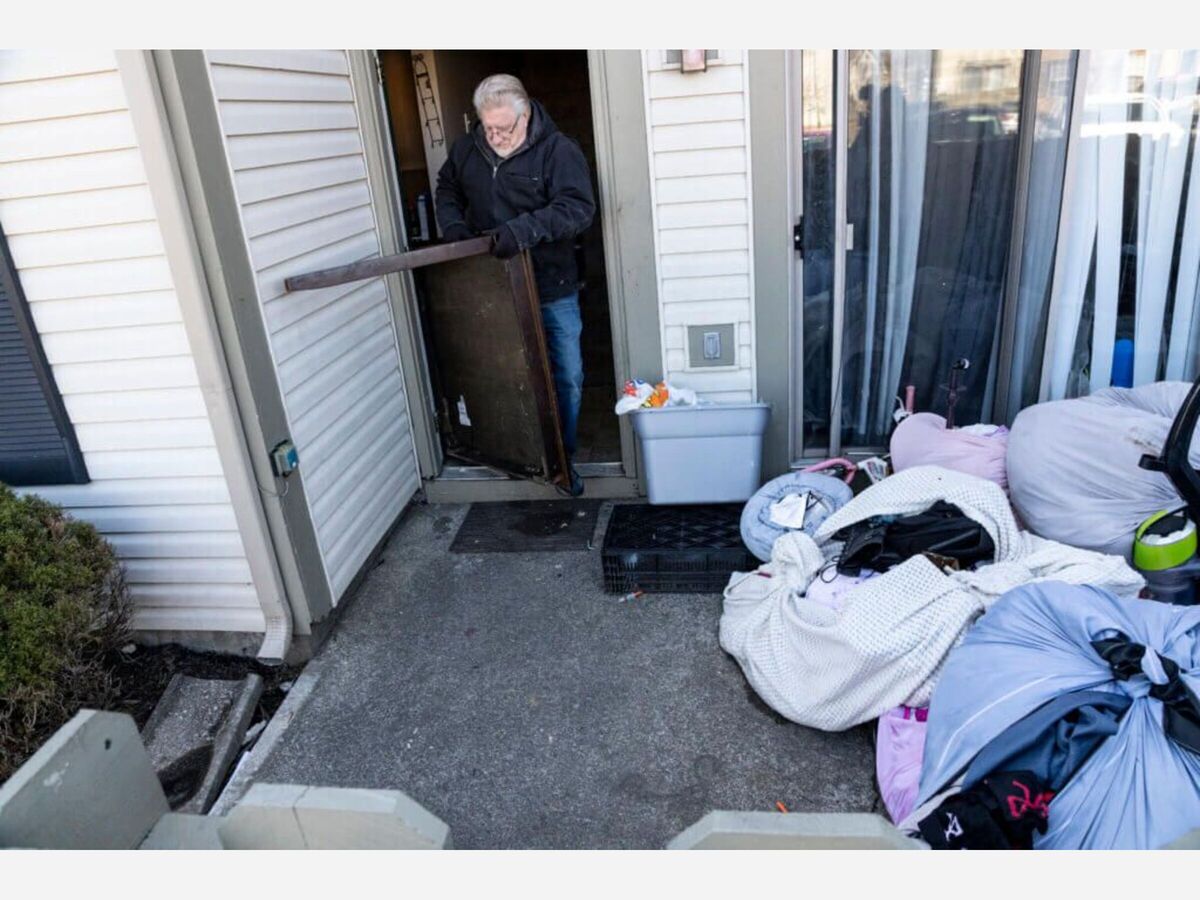Image


WASHINGTON (AP) — Dabney Friedrich, a D.C. District Judge in the nation's capitol refused, on Friday, to hear a refused landlords’ request to put the latest Biden administration’s eviction moratorium on hold, but the freeze was still documented as illegal.
U.S. District Judge Dabney Friedrich said her “hands are tied” by an appellate decision from the last time courts considered the evictions moratorium in the spring; and even if the court did "hold" the eviction moratorium, the only outcome would tie the case up for a couple of years, during which time the moratorium would remain in place.
Alabama landlords challenging the moratorium, set to expire Oct. 3, are likely to appeal this latest ruling -- thus stretching out the matter for an even longer period of time as it is tossed back and forth between courts who are unlikely, in the current COVID environment, to allow nationwide mass evictions. All that would do is make some public health matters that are already pretty bad right now even worse.
President Biden says there is more than $45 billion in rental assistance that has been approved, but has not yet been distributed. The Treasury Department has said that only about $3 billion of the first slice of $25 billion had been distributed through June.
A move of that kind would certainly explode the nation's homeless numbers from where they are now - estimated at more than half a million people - to potentially about 2 million or more, especially since roughly 3.5 million people in the United States have stated that they face eviction in the next two months, according to the Census Bureau’s Household Pulse Survey.
Perhaps it isn't a question of how much money landlords are losing as it is how much everyone's taxes are going to eat up that marginal profit if the government has to take full responsibility for housing the people who will have to hit the streets.
Biden Press Secretary Jen Psaki said in a statement that the administration believes the CDC moratorium is legal.
The Trump-appointed judge wrote that the CDC’s new temporary ban on evictions is substantially similar to the version ruled be her as illegal in May. She had previously put her ruling on hold to allow the Biden administration to appeal.
The U.S. Court of Appeals for the District of Columbia, three judges appointed by President Barack Obama, rejected the landlords’ plea to enforce Friedrich’s ruling and allow evictions to resume, saying it believes the CDC moratorium falls within a 1944 law dealing with public health emergencies. The Appeals Court ruling overrules the lower District Court.
This does not preclude the Alabama landlords from seeking relief from the Supreme U.S. Court which will take even more money and more time.
Are they spending more money on lawyers and court fees than they can ever make back in rent?
In late June, SCOTUS Justice Brett Kavanaugh said he agreed with Friedrich, but he also voted to keep the moratorium in place. He wrote in a short opinion that he would reject any additional extensions without a new, clear authorization from Congress, but Congress has not taken any action on the matter.
The old moratorium applied nationwide, but the current order applies only to places that have seen significantly high transmissions of the coronavirus - which is just about the entire nation, anyway. The CDC’s COVID-19 data tracker currently shows that that stipulation applies to more than 90-percent of the cities and counties in the nation.
They say that the CDC lacks authority to order a temporary ban on evictions, but the way Biden structured the order as given to the CDC allowed the court fight to come to D.C. instead of the C.D.C.
In the meantime, landlords can avail themselves of the rental assistance that is available to them, most of which has not been spent.
Even as the American economy continues its recovery from the devastating impact of the COVID pandemic, millions of Americans face deep rental debt and fear evictions and the loss of basic housing security.
COVID-19 has exacerbated an affordable housing crisis that predated the pandemic and that has exacerbated deep disparities that threaten the strength of an economic recovery that must work for everyone.
To meet this need, the Emergency Rental Assistance program makes funding available to assist households that are unable to pay rent or utilities.
Two separate programs have been established: ERA1 provides up to $25 billion under the Consolidated Appropriations Act, 2021, which was enacted on December 27, 2020, and ERA2 provides up to $21.55 billion under the American Rescue Plan Act of 2021, which was enacted on March 11, 2021.
The funds are provided directly to states, U.S. territories, local governments, and (in the case of ERA1) Indian tribes or Tribally Designated Housing Entities, as applicable, and the Department of Hawaiian Home Lands.
Grantees use the funds to provide assistance to eligible households through existing or newly created rental assistance programs.
The only "good" news is that now all evictions are judicial, according to Georgia Legal Aid.
For the moment at least, there are no 'help-yourself' evictions that don't end up going through courts as long as the tenant takes the time to answer -in court- the landlord's demand to vacate the premises.
In the meantime ... Rental Assistance in Georgia outside of the Atlanta area is being handled by the Georgia Department of Community Affairs: CLICK HERE .
If you live in the Atlanta area and its surrounds, contact the Consumer Financial Protection Bureau responsible for your area HERE.
###